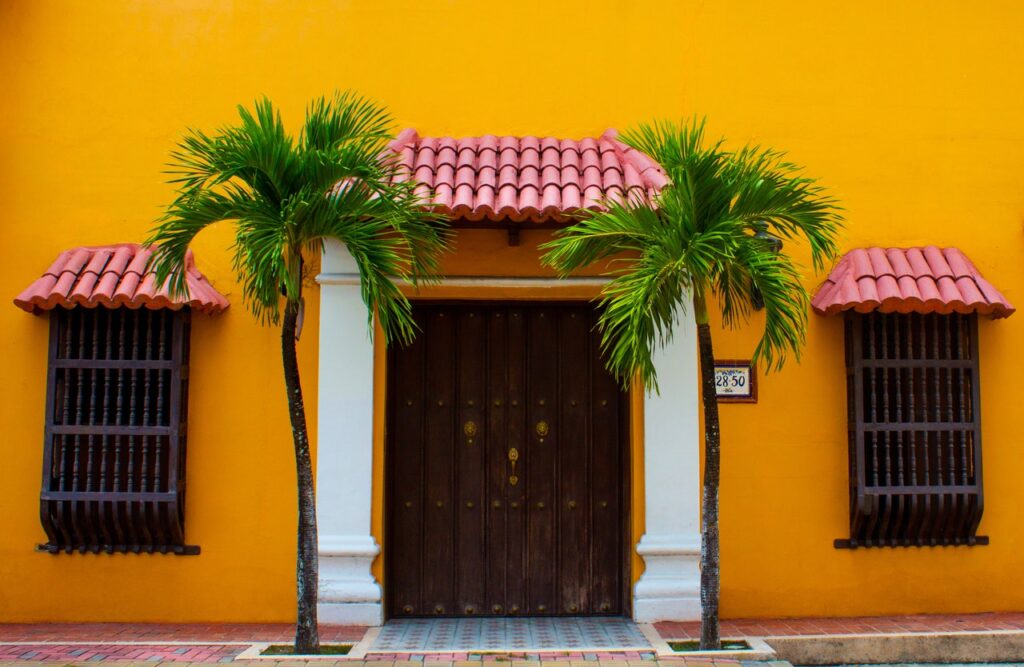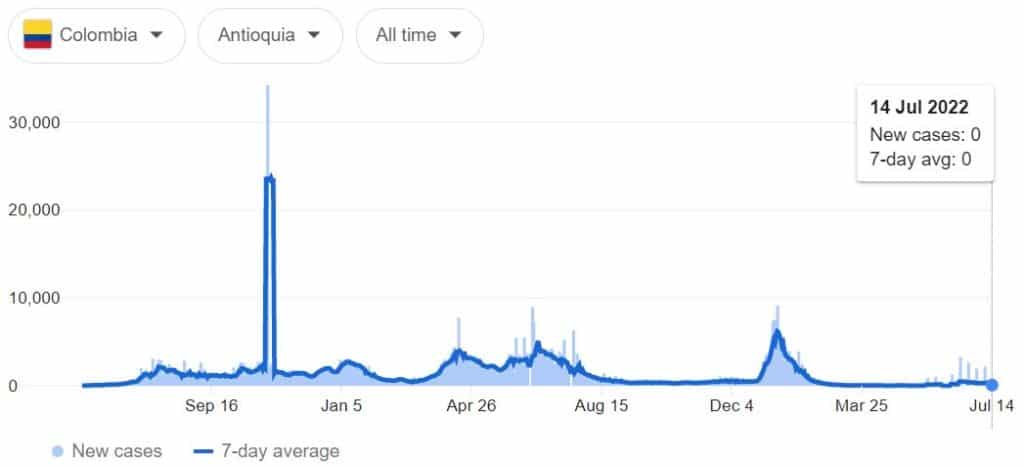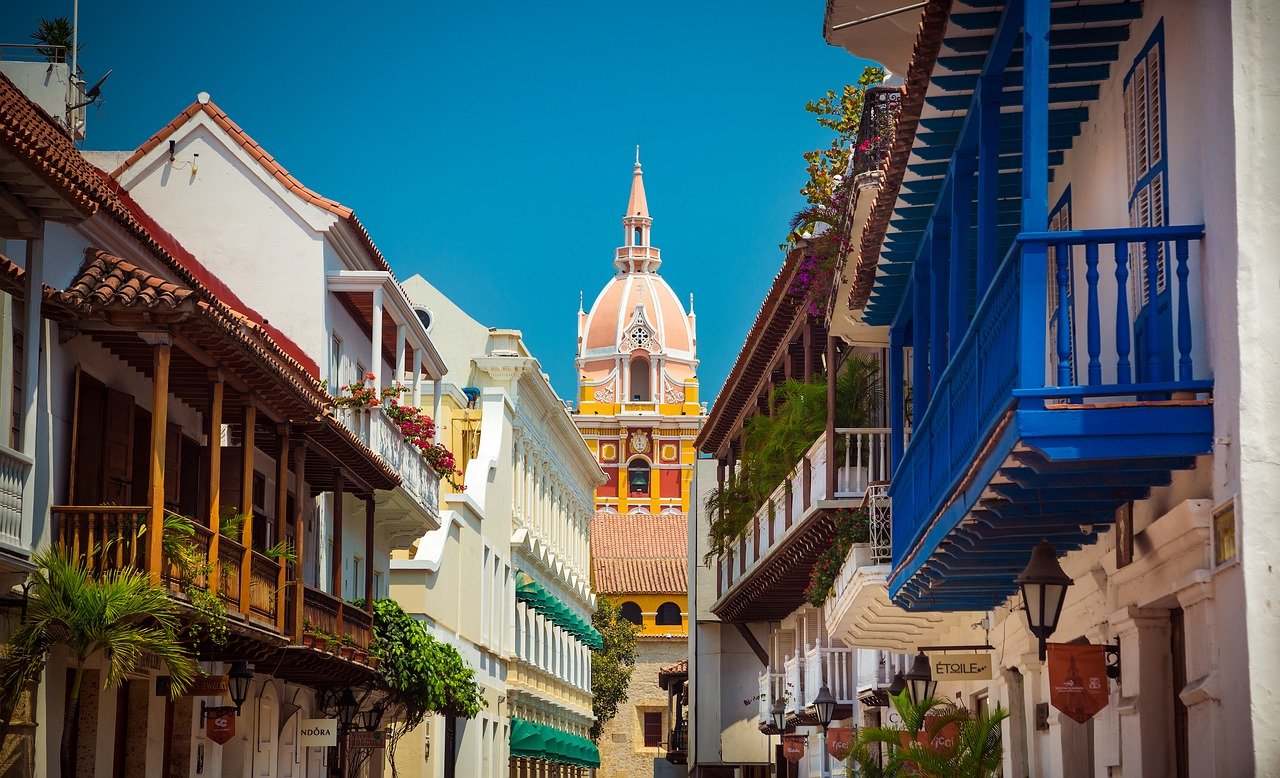The short answer is yes, Colombia is a safe destination as long as you stay away from “remote” areas.
As a rule of thumb, do not travel to that remote paradise or jungle destination you saw online if a local tells you not to. Most of the unfortunate situations that have happened to tourists in Colombia are due to travelers going to places against the locals’ advice.
With a seven-color sea (San Andrés), a rainbow river (Caño Cristales) and 54,871 registered species, 3,625 of them unique in the world, Colombia is one of the most amazing places in South America, and the country with the second largest biodiversity in the planet.
Is it safe to travel to Colombia – Latest Safety report

July – The country is better than ever
After the presidential elections on June 19, 2022, where a certain political unrest was expected given that a left-wing candidate won for the first time in history, the country and its tourist cities have remained calmer than ever.
Those interested in visiting can take advantage of the great current currency exchange that favors Americans and Europeans mostly.
the weather is perfect and Colombians are happy to welcome tourists back with open arms
Current COVID-19 situation in Colombia
Colombia has reported 6,223,497 cases and 140,365 deaths.

Is it safe to travel to Bogotá?
Bogotá is the largest and most cosmopolitan city in Colombia. Criminal acts such as terrorism are rare, but visitors should be wary of pickpockets,
Is it safe to travel to Medellin?
Medellin is the capital of Antioquia and the second largest city in the country. Again, beware of pickpockets, especially in crowded areas.
Is it safe to travel to Cartagena?
Internationally acclaimed Cartagena is a very safe city. Street vendors may try to rip you off for beer and other items. But just mention the police and prices will be lowered.
Why visit Colombia in times of COVID?
First of all, there are no entry restrictions in Colombia. Also, there is something for all types of travelers. From the Caribbean beaches and Andean mountain peaks to rainforests and other natural wonders. And, of course, coffee! In case you decide to visit Colombia this year, the CDC recommends you be vaccinated.
Updates archives
June – Presidential elections in Colombia
Presidential elections were held in Colombia on May 29, 2022. Since none of the presidential candidates received at least 50% of the vote, a runoff election between the two leading candidates, Gustavo Petro and Rodolfo Hernández Suárez, is scheduled for June 19, 2022.
This is the first time that a left-wing candidate could win the presidency, which has never happened before in the country’s political history. It is, therefore, to be expected that there will be some political unrest after June 19.
Tourists and other visitors are advised to take increased security precautions during the last 2 weeks of June.
May – Armed strike in Colombia
On Thursday, May 5, the Clan del Golfo, also known as the Gaitanista Self-Defense Forces of Colombia, called a “4-day armed strike.”
The pamphlet stated that it was forbidden to “open a business of any kind” and to “use any means of transportation.”
The statement ended with the threat of “unfavorable consequences” for those who do not comply with these measures.
“Armed strikes” in Colombia are defined as actions by illegal armed groups, such as guerrillas, paramilitaries or drug traffickers, in which they block roads, restrict mobility, threaten commercial establishments and force the suspension of classes at colleges and universities.
The armed strike has ended for now, but authorities are asking the public to exercise increased precautions when traveling to non-tourist cities in the coming weeks.
April 9 – Latest travel advice from the U.S. State Department
The U.S. State Department has issued a travel warning against Colombia “due to crime, terrorism, Covid-19, civil unrest and kidnapping,” which is true, if you are visiting far away places or flung urban ghettos that seem to attract some tourists for the wrong reasons.
The notice also warns against traveling to the departments (states) of Norte de Santander and Cauca (we locals agree!), with the exception of Popayán (Cauca), also known as the “White City” (yes, in the same sense as the Lord of the Rings).
Again, if you are in a city, in a town near a city, or on the Colombian Atlantic coast, there is no reason why anything bad should happen to you.
December 26 – First cases of Omicron detected in Colombia
On Monday, December 20, the first cases of the newly discovered Omicron variant were confirmed in Colombia. They were identified in a U.S. citizen and two Colombians visiting Cartagena and Santa Marta.
It was confirmed that the cases came from abroad – two from the U.S. and one from Spain. At the moment, there is no evidence of community circulation.
Even though the transmission rate remains relatively low in Colombia, the country’s Minister of Health Fernando Ruíz called out to its citizens to take extra safety precautions. He also recommended booster shots for everyone over the age of 18.
November 19 – Colombia now requires vaccination certificates to enter bars, restaurants, or venues
On Tuesday, November 16, Colombia began to require COVID-19 vaccination certificates to enter bars, restaurants, and other public venues, including cinemas, theaters, or sports stadiums.
The new measures apply to those 18 and over. Starting November 30, it will also affect children over 12 years of age.
The decision came along with the government’s aim to immunize all citizens against the virus. So far, only around 45% of Colombians and 6.4% of minors have been vaccinated fully.
Source: Republic World
October 11 – COVID-19 cases dropping in Colombia
Colombia suffered a spike in COVID-19 infections in mid-June when over 30,000 new cases were reported daily. However, since June 28, the number of infections has been dropping.
Yesterday, October 10, the country reported 1,587 new coronavirus cases, which is around 100 less than on the same day a month ago. Also, the number of deaths caused by the virus seems to be constantly decreasing. Yesterday, Colombia reported 38 COVID-19 fatalities, while a month ago, it was about 10 more.
Source: Worldometers
September 7 – Colombia reports the lowest COVID-19 death toll since June 2020
Colombia reported the lowest number of COVID-related deaths since June 2020, announced Fernando Ruiz, Colombian Minister of Health, on Sunday, September 5.
On that day, 48 patients died of COVID-19, while another 1,669 people tested positive for the virus. The country had not reported fewer than 50 fatalities attributed to coronavirus since June 13, 2020.
On the other hand, Colombia is concerned about the new, more contagious COVID-19 strains. And not only the Delta variant, which has been responsible for the current surges in cases in the U.S. and Europe. But also the Mu variant, which has recently been declared as ‘of interest’ by the WHO.
Source: Colombia Reports
August 22 – Colombia approved a third dose of a COVID-19 vaccine on August 21
Colombia approved a third booster dose of the coronavirus vaccine, confirmed the Ministry of Health Fernando Ruiz at a press conference on Friday.
Ruiz clarified that the third dose will be offered to residents with underlying conditions that “generate or lead to immunosuppression, such as heart, kidney, pancreas, lung, intestine, liver and bone marrow transplantation after the first two years.”
The official also mentioned that the government weighs the possibility of offering this benefit to the healthy elderly too. But it has not been confirmed yet.
Source in Spanish: Europa Press

